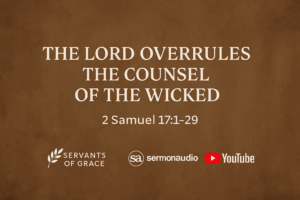⏱️ Estimated Reading Time: 15 min read
Pornography and sex-trafficking have gained a foothold of normalcy in the United States. Don’t believe it? Advertisements for sex with minors are now posted on several mainstream online ad companies. The activity is indeed illegal. But the right to advertise it, according to a majority of state and now federal courts, is not. Few news agencies reported these recent rulings. Last year Amnesty International called for the decriminalization of prostitution. Did the Church join the conversation? Did they even know about it?
Then consider this excerpt from the book, The Pimp Game, An Instructional Guide by Mickey Royal, currently for sale on Amazon:
“You’ll start to dress her, think for her, own her. If you and your victim are sexually active, slow it down. After sex, take her shopping for one item. Hair and/or nails is fine. She’ll develop a feeling of accomplishment… After you have broken her spirit, she has no sense of self value. Now pimp, put a price tag on the item you have manufactured.”
Many other books on how to become a pimp are also for sale at paperback prices. Like a cancer growing inside a patient too afraid to go to the doctor, sex-trafficking flourishes with little intervention. Google the phrase “it happens here-sex trafficking,” and thousands of stories pop up, each with a different city named. Voters interviewed in polls rarely mention sex-trafficking as a concern nor do any of the presidential candidates. It’s only on a few people’s radar.
Yet sex-trafficking has begun to capture the angst of many believers who struggle to know what to do with their outrage. How can we make a decisive impact against such profound evil? I’d like to share the stories of two teens who became ensnared in sex-trafficking. Along the way I want to challenge some myths held by many and offer practical ways the Church can help.
In a New York Times op-ed piece, Nicholas Kristof told the story of a 15-year-old girl, “Natalie” who was part of an “everyday, average family.” Natalie ran track and played soccer and the violin. Her mother, Nacole, told Kristof, “I dropped her off at school in the morning. I was expecting to pick her up after track practice in the afternoon. Then I didn’t see her for 108 days.”
Natalie ran off to a bus station where a pimp found her. Within days, he placed an ad for Natalie on Backpage, which runs more than a million sex ads a day worldwide. As a result, Natalie was placed on a virtual public auction block and sold for sex repeatedly.
Some runaways, like Natalie, make an impulsive decision with tragic consequences. “Fifteen-year-olds don’t make the best choices,” her mother said. What parent of a teenager would argue? Teens are not little adults. While they may be well acquainted with “right and wrong,” the frontal cortex of their brains aren’t fully formed. Hence the tendency for impulsive decisions. While Natalie chose to run away from home, she hadn’t planned on meeting a pimp. She wasn’t volunteering to engage in sex work when she went to the bus station. In fact, she had no idea the man she met was a pimp until it was too late.
Like Natalie, many survivors are not troubled teens with a long criminal history. Many believers are shocked to learn they may have encountered a sex-trafficking survivor without realizing it. She could be in your child’s classroom or one of her friends in the youth group. You might even have encountered a sex-trafficking survivor at work.
Dr. Jeffery Barrows has dedicated most of his career to helping hospitals spot sex-trafficking victims who come to their emergency rooms and clinics. He is an Obstetrician/Gynecologist on staff with the Christian Medical & Dental Association. In 2008, he founded Gracehaven, a rehabilitative home in Central Ohio for adolescent girls who have been survivors of child sex-trafficking. He serves as Director of U.S. Education at Hope for Justice, an organization dedicated to eradicating human trafficking worldwide.
Dr. Barrows tells a story of Jill who was trafficked by her pimp from age 14. She had run away from home to escape physical and sexual abuse. Many people are under the false impression that some teens make a conscious decision to become a prostitute. A comment left following one of my online articles asked about a 17-year-olds who “choose to leave home and engage in sex work, often lying about their age.” The comment also stated these teens “should bear some moral and perhaps legal responsibility.”
But there was nothing voluntary about Jill’s life or choices. She ran away to escape the severe abuse she endured at home. She’s not alone. According to the Office of Administration Children and Families, a child enters foster care every two minutes in the United States. Many of those kids, like Jill, have endure severe abuse. Sadly, many foster kids suffer further trauma in foster homes. Could that change if the Church stepped up? Thousands of children in every state in the US are waiting for foster families. To get involved in foster care and adoption can prevent a child from ever becoming a victim of sex-trafficking. Many Christian adoption agencies train volunteers to foster a child. One way to fight sex-trafficking is to fight domestic child abuse through foster parenting and mentoring young moms and dads in church.
Let’s return to Jill’s story. Homeless, Jill was approached by a man named Bruce who promised to provide work. Out on the street, a pimp disguised as a caring older man is no match for a 14 year-old who has little alternative. Jill agreed to go to Bruce’s “office,” which turned out to be the cellar of his home. She was hung from the ceiling with leather straps, beaten and tortured until she agreed to work as a prostitute. Still think she had a choice?
Unlike Jill, many trafficked individuals seem physically free to leave, but they aren’t psychologically free. The manipulative cycle of false love and abuse creates a trauma bond between a victim and her pimp. Trauma rewires the brain and requires specialized care before long term healing can occur.
This can be a hard aspect for many to understand, but it should not be for believers. God’s Word tells us when we were dead in our trespasses and sins, Christ made us alive in Him. Though we may very much appear physically alive, apart from Christ we are spiritually dead. And not unlike a sex-trafficking survivor, apart from Christ we may appear to be free, yet we are slaves. Ever tried to kick an addiction apart from the power of Christ? Both Natalie and Jill were easily located by a pimp. Perpetrators can spot vulnerability whenever it comes into view. Pimps frequent bus stops, train stations, school yards. With empty bellies and no shelter, runaway teens have few options. What if caring believers started a ministry at bus stops looking to assist the same vulnerable teenagers pimps seek? What if Jill had encountered a Christian on the lookout to help a runaway? Unfortunately, no one was there to engage her but Bruce.
During the next three years, Jill suffered horrible torture and repeated rapes by Bruce’s clients. She was hung by her neck resulting in a permanent scar and damage to her vocal cords. She could barely speak. When she became pregnant, Bruce became her abortionist. After enduring Bruce’s botched abortion, Jill began to hemorrhage. So Bruce took Jill to an ER in Los Angeles.
Those in the medical profession, working at a clinic or hospital, may have encountered a sex-trafficking victim like Jill. A 2014 study reported that 87 percent of 107 trafficking survivors interviewed had contact with a healthcare provider while they were trafficked, including 63 percent who went to a hospital or emergency room. More than half of those interviewed interacted regularly with some type of clinical facility such as urgent care, women’s health clinic, or Planned Parenthood. The report noted at least two prior studies demonstrated that healthcare providers are “woefully unprepared to identify trafficking victims.”
The ER in Los Angeles was no different. Bruce had a cover story that hid his true identity and Jill’s dire circumstances. He told ER personnel he was Jill’s older brother, and they had lost their parents in a car accident two years before. As a result of the sudden loss of her parents, Jill suffered from Schizophrenia and often hallucinated about very strange things—like being held captive and suffering torture. She needed to be tied down so she didn’t run away. So said Bruce.
Medical personnel accepted his story without hesitation. They couldn’t see who was right in front of them because they weren’t looking for her. What if just one of the medical personnel treating Jill had been trained to see the red flags Jill displayed or at least had a healthier curiosity? Did they confirm the story of her parent’s death? If she was a schizophrenic, why was she not on appropriate medication? And how did Jill end up pregnant when she was being watched over so closely by a caring older brother?
Jill remained in the hospital three more days and was returned to her captor. This scenario is played out repeatedly in ERs across the country. She was finally freed after 3 years of captivity by police on a drug raid to Bruce’s home. They found Jill bound and gagged in a closet.
Jill and Natalie’s very different stories remind us that the circumstances of a sex-trafficked victims can vary enormously. With each victim’s story being unique, how does the Church begin to offer hope?
- Learn as much as you can on the subject of human trafficking. Locate qualified speakers to train your entire church as to what a traffic victim looks like and what to do if they think they have encounter someone like Jill or Natalie. Are you a nurse or physician in a local hospital or clinic? Contact the Christian Medical and Dental Association and ask for a speaker who can train your staff. Are you a teacher at a school? There are several organizations (Shared Hope Intl., Street Grace to name two) offering training for teachers and students.
Youth Pastors, are you educating parents and teens about human trafficking? Many pimps approach middle school girls under the guise of being an admiring boyfriend. They target “good little church going children” and use their budding conscience against them. Would the twelve-year-old teens in your congregation see that coming and know how to respond?
“Awareness” does more than provide information. It equips concerned Christians to take action. It prevents young girls from becoming victims. A 12-year-old girl who attended a training session I led at church came up to me afterward, describing her best friend’s new boyfriend. She was concerned. Turns out she had reason to be. But what if she hadn’t attended the training session? Would she have been able to recognize what was happening to her friend? Would she or her parents know how to help?
Shared Hope International is an excellent resource for information about sex-trafficking with well researched studies and information on state legislation. They also can locate competent local speakers in almost any part of the country. They provide online training for those interested in spreading awareness in their spheres of influence.
- Find out who in your community is already at work helping survivors.
Like so many other social justice causes, sex-trafficking is loaded with its share of hubris. With a battle this large, we can’t afford to not play well with others and reinvent the wheel. Don’t be afraid to cross denominational lines. Don’t be afraid to follow, instead of lead, if another demonstrates competence and wisdom in this area.
Tracy McElhaney heard about an iCare in Augusta, Georgia through her church and attended a conference. She listened to the testimonies of a lawyer, therapist, police officer, and stay-at-home mom who found places to serve locally and nationally.
“Not a prostitute, not a victim, but a recovering survivor that deserves another chance,” therapist Bonnie Martin said.
“I walked in as an everyday person, a volunteer at a local church . . . Now that I have a greater understanding of the sex-trafficking survivor I advocate for nearly every day,” Tracy said.
- Reach out to law enforcement and government service organizations with a servant’s heart. Ask how your church may assist them as they recover victims who need a legion of services. Be willing to learn equally as much as you seek to educate.
- Ask God to give you wisdom and knowledge and creativity as you seek to grapple with this subject. We need more safe houses to help trafficking victims recover from their trauma. Currently we have more restorative services for stray cats and dogs than victims of trauma. We also need folks who are willing to engage in the messy work of building long-term relationships with traffic survivors.
Begin praying how God might use you in these areas. Be willing to do some research on your own as to what is available in your area and what those agencies need from a volunteer. We need people willing to think outside the box and offer fresh approaches to fighting this scourge.
John Meekins holds a degree in managing and marketing and works as a consultant for the Office of Victims and Crime Training. He uses his technical skills to track minors being sold on Backpage. He posted this update on Facebook May 3rd:
“The other day I found a minor being sold on Backpage in these places on the map. She is only 15!!! I notified law enforcement and things are in the works. It’s a sad world when someone can get online and just order a child and have them delivered to your door in a matter of a couple of hours. Here in America in quaint old southern towns like Birmingham, Pensacola, Mobile, Chattanooga. May makes my fourth year in the fight against this crime. It is what I was born to do! I have the perfect skill set for doing this.”
- Make certain your local and state representatives keep this subject front and center. Recently, in a rare demonstration of bi-partisan leadership, the US Senate voted to hold Backpage in contempt for refusing to supply subpoenaed testimony and documents related to its investigation of online sex-trafficking. Contact your Senator and thank him, let him know you would like to be updated on the steps forward.
- Do not be intimidated when you face opposition. Not if. When. “All who desire to live a godly life in Christ Jesus will be persecuted,” 2 Timothy3:12 (ESV). There are a number of critics who name-call faith based ministries as “incompetent do-gooders filled with puritanical hysteria, doing more harm than good.” Remember that as far as it depends upon you, treat your enemy with respect, but don’t allow him to cause you to shrink back from what God has called you to do.
When the Christian community sought to speak into the arena of counseling from a Biblical perspective, critics used a similar language and many sadly relinquished their call to godless “experts”. Is it any wonder that addiction and suicide rates are at an all-time high? We alone have the true message of hope found in Christ Jesus.
- Finally, Pray intentionally with greater specificity. Get to know the names of people on the front lines in this fight and pray for them. Want a name to get you started? Chicago Sherriff Thomas Dart is one individual who took on Backpage. Talk about thinking outside the box— Dart contacted the major credit card companies and informed them that when their cards were used on Backpage, it was often to purchase sex from an unwilling victim. Most of the major credit card companies immediately opted out of Backpage. The company retaliated against Dart in court. The man could use your prayers!
- Pray for specific ministries engaged headlong in this battle. Anyone who has worked with sex traffic victims for any length of time will tell you they “do not wrestle against flesh and blood,” Ephesians 6:12-13 (ESV). Shannon Forsythe, founder of Run 2 Rescue, a California-based nonprofit that aids domestic sex-trafficking victims, told WORLD magazine, “You’re stepping into a really dark area. The oppression, the nightmares my girls have, it’s just demonic. This is a warfare.”
In 2014, Forsyth launched Anchors of Hope, which is “one team working with one girl, in as many communities as possible.” They train teams in churches and communities across the country to bring a rescued victim into their community for restoration. Perhaps they might train yours. No one held these folks’ hands and led them to the perfect anti-trafficking ministry. They humbly sought adequate preparation and training and prayerfully asked God to give them courage and open the doors of opportunity.
Finally, let me leave you with an exhortation from Charles Spurgeon: “Brethren, do something, do something, do something. While committees waste their time over resolutions, do something. While societies and unions are making constitutions, let us win souls. Too often we discuss and discuss and discuss while Satan only laughs in his sleeve.”




